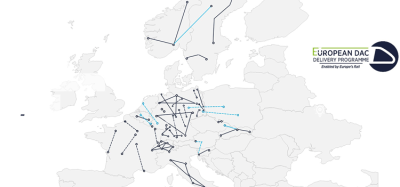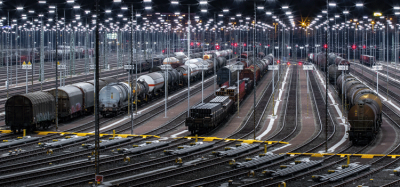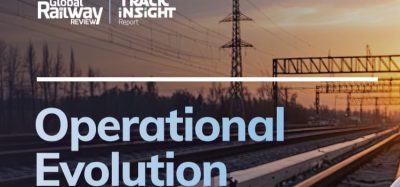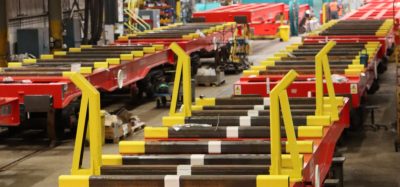Identifying appropriate support measures for rail freight during COVID-19
Posted: 20 April 2020 | Conor Feighan | No comments yet
For Global Railway Review, Conor Feighan, Secretary General of the European Rail Freight Association (ERFA), considers what measures need to be in place to allow rail freight operators to navigate their way out of the COVID-19 crisis in a strong position.
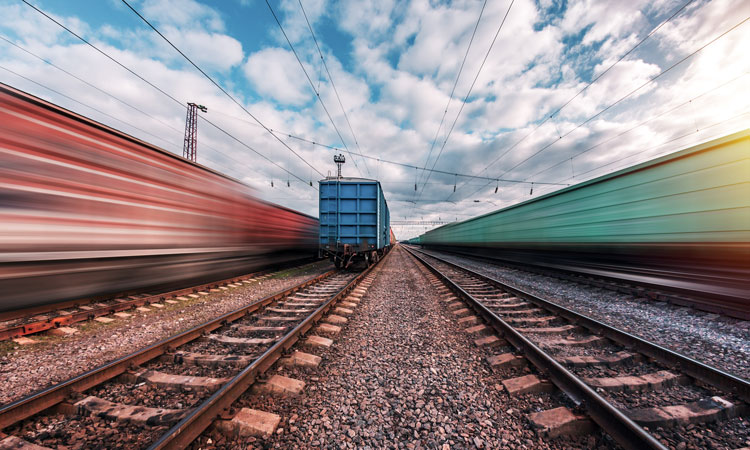

Like every other sector of society, the outbreak of COVID-19 has had a direct impact on rail freight. At first, the impact was primarily disruptive, namely disturbances to international freight flows in light of nations closing their borders. For instance, due to restrictions on personnel crossing borders, there were significant issues in getting essential staff across borders. All the same, rail freight is playing a key role during this critical time in connecting European economies and keeping freight moving.
We are now entering the next stage of the COVID-19 crisis, and one which will have a lasting impact on the sector
We are now entering the next stage of the COVID-19 crisis, and one which will have a lasting impact on the sector; namely, how will rail freight manage with the decline in freight flows and what condition will the rail freight sector be in when emerging from the crisis. It is crucial to Europe’s climate and modal shift objectives that rail freight emerges from the crisis in a healthy condition and is ready to play its part in the decarbonisation of freight. Although governments’ focuses have correctly been on the current health emergency, the climate emergency still needs to be addressed.
Identifying appropriate support measures
Thankfully for rail freight, the impact of COVID-19 has not been as dramatic as it has been for passenger services where, in many cases, services have been suspended or reduced to five to 10 per cent of normal figures.
In general terms, rail freight figures are down by around 30 per cent since the onset of the COVID-19 crisis. This is primarily due to industrial slowdown in key freight hubs (both in Europe and throughout the world). The expectation is that they will drop further. We are now entering a stage of discussions where we need to identify what type of support measures would be the most appropriate to assist the rail freight market during these challenging times in a fair and non-discriminatory manner.
Thankfully for rail freight, the impact of COVID-19 has not been as dramatic as it has been for passenger services where, in many cases, services have been suspended or reduced to five to 10 per cent of normal figures. The discussion on how to assist passenger operators and freight operators is, therefore, different. Passenger operators may need direct support – this is not yet the case for freight operators.
The objective needs to be that rail freight can be assisted in such a manner that ensures governments can avoid having to consider introducing direct state supports to support a failing operator. Firstly, such a measure would be legally difficult under existing competition rules. Secondly, any direct state aid would have the potential to greatly distort what is a competitive market. It is extremely difficult to guarantee that direct state aid to individual companies can be done in a fair and impartial manner.
Reduction in operating costs?
What is needed instead is a short-term reduction in operating costs for all rail freight undertakings. We have already seen some positive steps – namely, the waiving of path cancellation fees – in many countries. This has been an important measure, as many rail freight operators have had to cancel operations due to developments that were unforeseeable and outside of their control. This approach has also been fair and appropriate given that it assists all operators equally. However, this approach needs to go further.
Waiving Track Access Charges and Energy Charges?
National governments should be putting serious consideration into waiving Track Access Charges and Energy Charges on a short-term basis. This would reduce costs for rail freight undertakings and contribute towards national and European modal shift objectives. Such a measure would also be fair and non-discriminatory, as all operators would avail of this initiative equally.
National governments should be putting serious consideration into waiving Track Access Charges and Energy Charges on a short-term basis.
Naturally, such a measure would require some financial assistance. It is not possible for infrastructure managers to simply waive Track Access Charges and Energy Charges given that this is an important source of revenue for them – and one that is already decreasing due to a reduction in freight operations. Rail freight operators understand and appreciate the financial difficulties related to the waiving of charges.
Any state support for rail freight should, therefore, be directed towards infrastructure managers under the condition that this is joined with a short-term waiving of Track Access Charges and Energy Charges. For instance, a waiver on Track Access Charges and Energy Charges could be linked to the duration or size of the state support measures introduced. This would allow for infrastructure managers to be properly financed whist also granting rail freight relief measures in which to continue operations.
Avoiding cross-subsidisation
Special attention should also be paid to ensure that any risk of cross-subsidisation through vertically integrated companies is avoided. As stated, the support measures needed for passenger and freight operators will be different, and it is quite possible that passenger operators may need significant support. In cases where a passenger operator is linked to a freight operator – through a holding company, for instance – special attention must be paid to ensure that any support for the passenger operator is used exclusively for passenger operations. The same is true in cases where the freight operator and infrastructure manager are still linked.
Continuation of capacity
Apart from support measures, national governments need to ensure that capacity remains open. Rail freight will only be attractive if it has a good level of capacity allocation available during both the day and night. Where capacity restrictions are introduced, this needs to be done in a coordinated manner, given that rail freight needs a coordinated approach to capacity management.
Introducing smart measures
The primary objective needs to be to ensure that the rail freight sector does not experience real and lasting damage from the COVID-19 crisis.
Crucially, though, the primary objective needs to be to ensure that the rail freight sector does not experience real and lasting damage from the COVID-19 crisis. If governments take proactive action to introduce support measures now, we can avoid discussions on large direct financial support to individual operators in the future. As stated, this opens up significant legal questions and would distort the market. Now is the opportunity to introduce smart measures, such as waving Track Access Charges and Energy Charges, which would play a crucial role in ensuring rail freight can navigate its way out of the crisis in a strong position.





